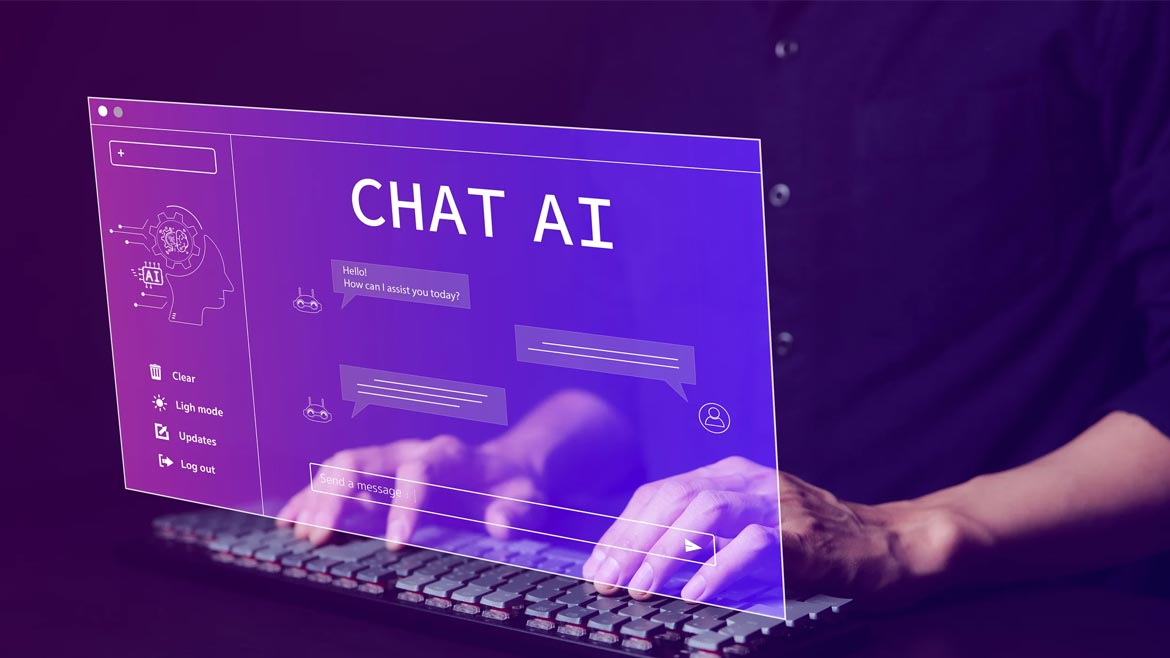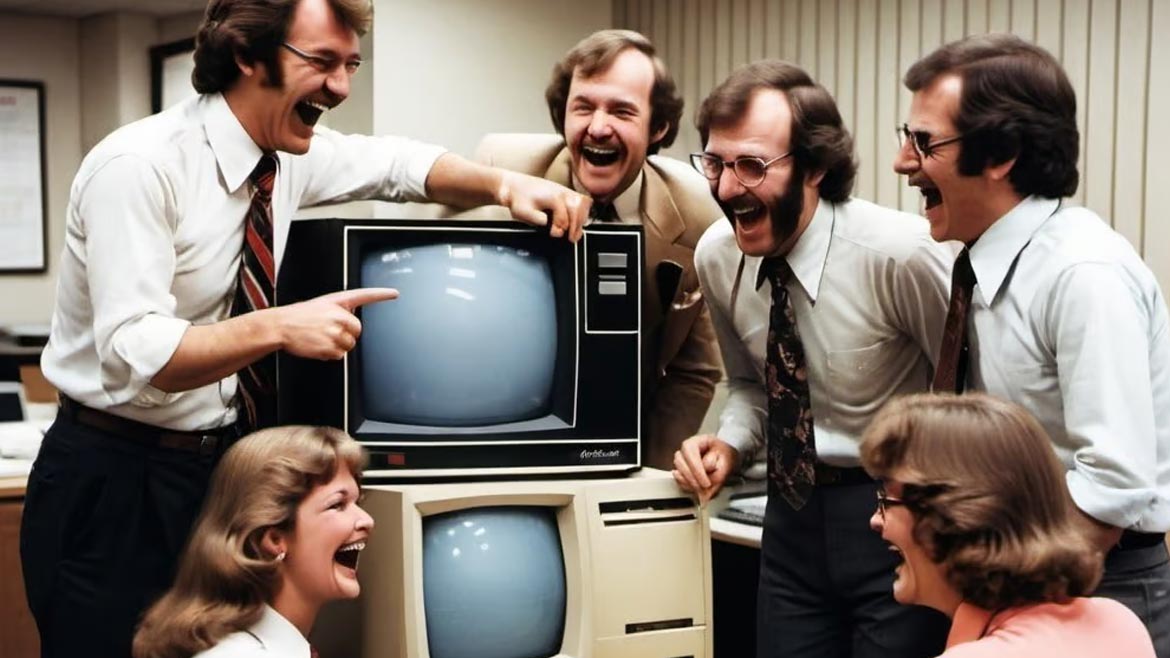Showroom Dollars & Sense | Jeffrey Valles
AI resources to help you get started
AI is right now

Image Source: Supatman / iStock / Getty Images Plus via Getty Images
It's no surprise: AI is here. It had been lurking in the shadows, but in October 2023, ChatGPT3 was released to the world. And it was free to use. Prior to this, there were other AI bots but they were just not worth the effort. ChatGPT-2 was first released by OpenAI in February 2019., which saw some usage, but it was GPT-3.5 that truly stepped onto the stage and was readily embraced by the public. Why you ask? This thought from Google’s Gemini, “Here's an analogy: GPT-2 is like a student who has read a good amount of books, while GPT-3 is a scholar who has devoured a massive library. Plus, GPT-2 wasn't exactly public-facing either.” Summarized, GPT2 was not especially smart and a pain to work with.
What were your initial impressions when you first used it?
My immediate thought was, "How will this revolutionize businesses and leave others lagging behind?" That sentiment still holds true today. I've discussed it with peers in our industry, and the consensus seems to be: "Once it becomes more user-friendly and applicable to our specific business needs, we'll consider adopting it." For now, we have enough on our plates with our plumbers, builders, designers, and local homeowners and vendors doing who knows what. While these challenges will always remain, and if new AI tools will help you and your team win these enduring battles, whey not give it a look over? Presently, there's a prevailing notion that effectively integrating AI into your company’s culture can elevate every employee to at least 80% of the proficiency of the best individual in the field. In an industry constantly thirsting for talent, this prospect holds immense allure. Moreover, if one waits until AI applications perfectly align with their specific business model, they risk falling behind; others will have already leveraged its benefits and adapted it to their needs. Can one afford to delay in a world where progress moves at breakneck speed? Remember the introduction of the computer and then the PC?
When IBM introduced its PC there was great buzz. An actual personal computer right on my desk. A powerful computer that I can control. I can get rid of all my ledger cards…

by Open Art by Stable Diffusion
With all its promise, the PCs of the 1980s lacked the software muscle to flex. No AutoCAD, no Photoshop, no games, no Office. We had this powerhouse of a machine that could not balance a checkbook unless you knew how to code. Early adopters had to be part tech-savvy, part daredevil, and have hours to spare for experimentation. Amidst this frenzy, most plumbing supply houses lagged behind in the PC revolution. And for good reason. Firstly, we operated on razor-thin margins, where cash flow reigned supreme. Venturing into the uncharted territory of new technology could either supercharge efficiency or torpedo our finances and operations. Secondly, our products and clientele in the 90s weren't exactly tech buffs. Tech was more of a side hustle, slowly inching its way into our lives. Fast forward to today, financial stability still rules the roost, but tech has infiltrated every nook and cranny of our personal and professional domains. Heck, some shower-heads now come with their own software. Plumbing supply houses and their showrooms now present, sell and support tech-enhanced products. So, why should we shy away from embracing the best tech tools for our businesses?

by Open Art by Stable Diffusion
With all that, why should I bet the farm on a technology that's barely out of diapers, only 18 months old? The big difference is we have now easy to access and easy to use hardware. Unbelievable hardware power is at our desks, on job sites, and yes, even tucked snugly in our pockets. Wrap your head around this: the mini-computer in your pocket grants you access to the brainpower of Microsoft, Google, OpenAI, and a myriad of other brilliant AI’s, all for free. PCs back then? Pricey, barren of software, and as mysterious as a black box. Today, the most mind-blowing software ever conceived is being tailor-made to run on your handheld gadget. This seismic shift has spurred an unprecedented adoption frenzy, with billions, if not trillions, poured into perfecting it and offering bespoke AI solutions for businesses of all stripes.
So, let's not get left behind. In small business, it's scary to fall behind. But in today's fast tech world, not embracing it can be scarier. Let's face our anxieties and see them as opportunities to grow. By using new tech, we're not just keeping up; we're making sure our businesses stay strong in a changing world. So, let's take a chance, knowing that using tech brings more good than staying the same.
To help kick start this AI learning process, I suggest that you take some time and start to work and play with one of these amazing tools. Here are a few links to free sites:
I think they will amaze you on how they can simply help you in this early and raw form. I also suggest you allow your staff to use them at work. And then step back and listen and learn from what they learn.
Next month we will look at a way to leverage your showrooms data to help you use a generative artificial intelligence tool to build the best AI tool for your showroom team and customers.
Below are a two suggestions to look up and spend a little time with,
Christopher Penn, https://almosttimely.substack.com/. I have been following and learning from Christopher Penn for 20 years. He has always kept me up-to-date on what is happening in the tech and now the AI marketing world. He helps guide people through the newest and latest tech tools and how to best apply then in your individual business. I suggest starting with the February newsletters. These are quick 15 minute reads and will gain AI insights and to create questions to help you move forward.
How Do You Use ChatGPT podcast: https://podcasts.apple.com/us/podcast/economist-tyler-cowen-on-how-chatgpt-is-changing-your/id1719789201?i=1000642766733.
This podcast features interviews with smart people on how to use ChatGPT. The guests offer insights into using the tool that I never would've thought of. I especially enjoyed the episode linked above with Tyler Cowan, the economist, author, and general polymath. Hearing the two of them work together on how to get the most out of this new tool was very insightful.
This document was edited by both ChatGPT and Gemini.
Looking for a reprint of this article?
From high-res PDFs to custom plaques, order your copy today!





